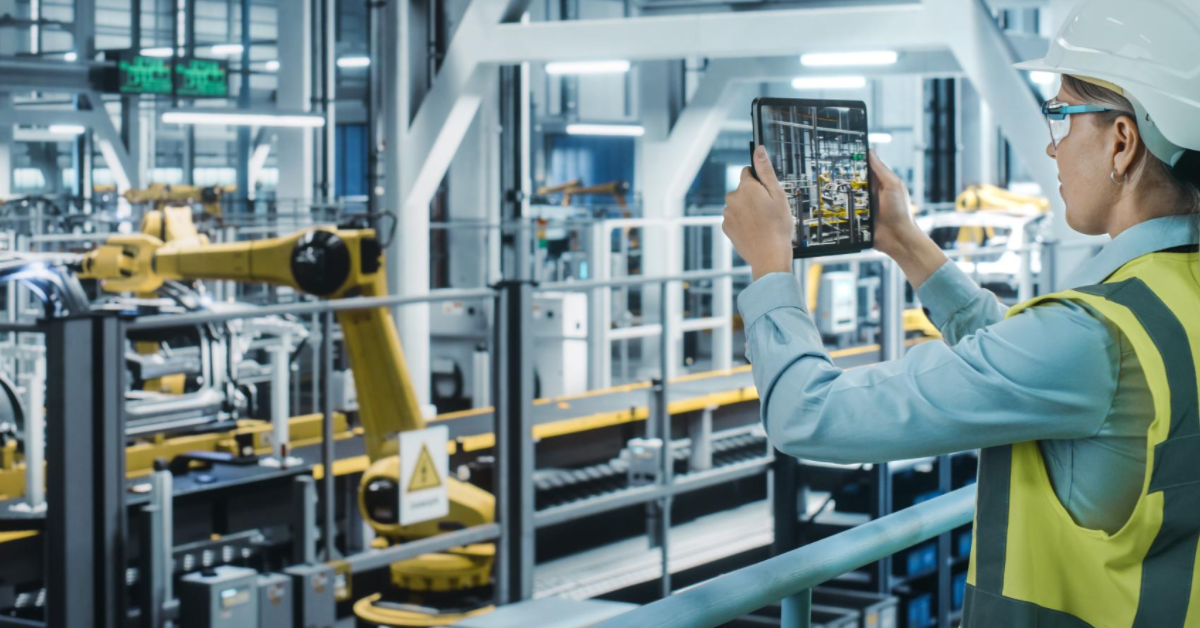The Internet of Things (IoT) is a network of physical objects that are embedded with sensors, software, and other technologies for the purpose of connecting and exchanging data with other devices and systems over the internet. IoT is rapidly transforming the business landscape, offering a plethora of opportunities for businesses of all sizes to improve efficiency, productivity, customer experience, and revenue generation.
The Rise of IoT
IoT has its roots in the early days of the internet, when visionary researchers began to conceptualize a future where machines could communicate with each other without human intervention. Over the years, significant technological advancements have made this vision a reality. The development of cheaper and smaller sensors, the ubiquitous availability of the internet, and the proliferation of cloud computing have all played a vital role in the rise of IoT.
Opportunities Offered by IoT in Business
IoT offers businesses a wide range of opportunities to improve their operations and bottom line. Some of the key benefits include:
- Increased efficiency and productivity: IoT can automate tasks and processes, freeing up employees to focus on more strategic and value-added activities. Real-time monitoring and adjustments can also help businesses optimize their operations and reduce waste.
- Data-driven decision making: IoT devices generate vast amounts of data that can be analyzed to gain valuable insights into customer behavior, market trends, and operational performance. Businesses can use these insights to make better decisions about product development, marketing, and resource allocation.
- Enhanced customer experience: IoT can be used to personalize products and services, offer real-time customer support, and gather feedback. This can lead to a more satisfying and engaging customer experience.
- New revenue streams: IoT enables businesses to create new products and services that were not possible before. For example, businesses can offer subscription models, pay-per-use services, or even data monetization.
- Improved supply chain and inventory management: IoT can track the movement of goods throughout the supply chain in real time, enabling businesses to identify and address potential disruptions early on. Predictive maintenance and restocking can also help businesses reduce costs and improve efficiency.
Risks and Concerns with IoT in Business
While IoT offers a wealth of opportunities, there are also some risks and concerns that businesses need to be aware of. These include:
- Security threats: IoT devices are often vulnerable to cyberattacks, which can lead to data breaches and other security risks. Businesses need to implement robust security measures to protect their IoT devices and data.
- Privacy issues: IoT devices collect a significant amount of personal data, which raises concerns about privacy. Businesses need to be transparent about how they collect and use personal data, and they need to obtain consent from users before using their data.
- Complexity and management: IoT deployments can be complex and challenging to manage, especially for businesses with limited resources. Businesses need to carefully plan and implement their IoT deployments, and they need to have the necessary skills and expertise to manage their IoT systems effectively.
- Interoperability: IoT devices often use different standards and protocols, which can make it difficult to integrate them with existing systems. Businesses need to ensure that the IoT devices they choose are interoperable with their existing systems.
- Economic and financial risks: IoT deployments can require significant initial investments, and there is no guarantee of a positive return on investment (ROI). Businesses need to carefully assess the costs and benefits of IoT before making a decision to invest.
The Future of IoT in Business
IoT is still in its early stages of adoption, but it is poised to have a major impact on the business world in the years to come. As the technology continues to mature and become more affordable, we can expect to see IoT deployments across all industries.
Some of the key trends that we can expect to see in the future of IoT in business include:
- Integration with emerging technologies: IoT will increasingly be integrated with other emerging technologies, such as artificial intelligence (AI), blockchain, and augmented reality/virtual reality (AR/VR). This will create new opportunities for businesses to develop innovative products and services.
- IoT in green and sustainable businesses: IoT can play a significant role in helping businesses to become more green and sustainable. For example, IoT can be used to reduce energy consumption, waste, and environmental impact.
- Expansion in various industries: IoT is already being used in a wide range of industries, including healthcare, manufacturing, retail, and transportation. However, the potential for IoT adoption is still largely untapped in many industries. We can expect to see significant growth in IoT adoption across all industries in the coming years.
- Regulations and standardization: Governments around the world are working to develop regulations for IoT to address security, privacy, and other concerns. We can also expect to see a push towards global standards to ensure seamless interoperability between IoT devices.
Preparing for an IoT-Driven Business Landscape
Businesses need to start preparing for the IoT-driven business landscape today. Here are some tips:
- Invest in skill development and training: Businesses need to invest in developing the skills and expertise of their employees to manage and deploy IoT systems effectively. This includes training on topics such as IoT security, privacy, and data analytics.
- Collaborate with tech partners and providers: Businesses may need to collaborate with technology partners and providers to help them with their IoT deployments. This can help businesses to overcome the challenges of complexity, management, and interoperability.
- Focus on a robust security infrastructure: Businesses need to implement a robust security infrastructure to protect their IoT devices and data from cyberattacks. This includes measures such as strong authentication, encryption, and regular security audits.
IoT is a transformative technology with the potential to revolutionize the business world. By embracing the opportunities offered by IoT and mitigating the risks, businesses can position themselves for success in the IoT-driven business landscape.


